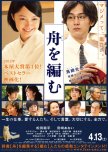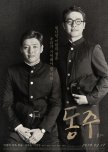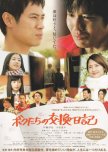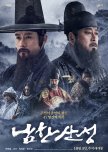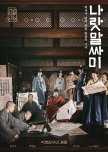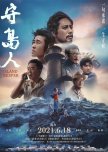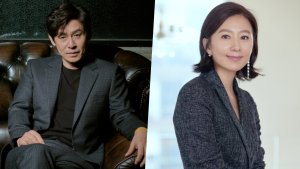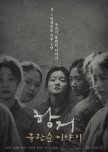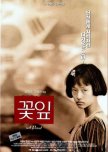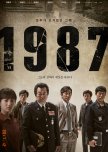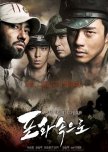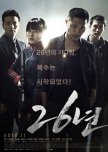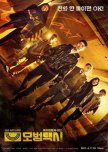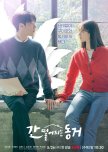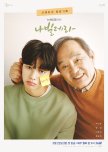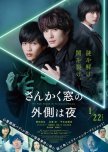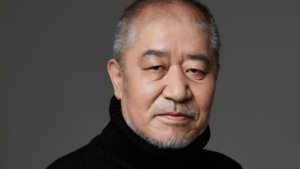 Actor Lee Young Suk Joins "My Dearest Part 2"
Actor Lee Young Suk Joins "My Dearest Part 2" Jung Yak Jeon is a scholar and bureaucrat. He is exiled to the remote island Heuksando. There, he becomes fascinated with fish and decides to write about them. Jung Yak Jeon asks young fisherman Chang Dae for help, but Chang Dae turns him down. He states that he does not want to help a criminal. Jung Yak Jeon is aware that Chang Dae studies by himself and has a hard time studying. Jung Yak Jeon then offers to exchange knowledge, with Jung Yak Jeon offering his expertise in studies for Chang Dae's expertise about the sea. Chang Dae accepts the offer. Soon, Jung Yak Jeon realizes that Chang Dae studies to become successful and he becomes disappointed in him. (Source: AsianWiki) Edit Translation
- English
- 中文(台灣)
- magyar / magyar nyelv
- dansk
- Native Title: 자산어보
- Also Known As: A Fish Map , Fisherman , Jasaneobo , 茲山魚譜
- Director: Lee Joon Ik
- Screenwriter: Kim Jung Hoon, Kim Se Gyum
- Genres: Historical, Drama
Where to Watch The Book of Fish
Cast & Credits
- Sul Kyung GuJeong Yak JeonMain Role
- Byun Yo HanChang DaeMain Role
- Lee Jung Eun[Woman from Gageo]Support Role
- Min Do HeeBok RyeSupport Role
- Cha Soon BaePoong HunSupport Role
- Kang Ki YoungLee Kang HoeSupport Role
Reviews

A portrait of Joseon scholar Jeong Yak Jeon that is both affecting and thought-provoking
This may be my favorite of the films I’ve seen from director Lee Joon Ik. It is based on the writings of Jeong Yak Jeon, a scholar who was exiled to Heuksando during the Sinyu Persecution in 1801, where he wrote the Jasaneobo (The Book of Fish). His story is told alongside that of Chang Dae, a fisherman whose knowledge of fish and marine life helped Jeong Yak Jeon to write his book. Most of Chang Dae’s story as presented in the film is fictional, but Jeong Yak Jeon did make multiple mentions of him in his work. The juxtaposition of the two characters and the growth of their relationship over many years is the core of the story told here.At first this seemed to be a serene, serious, and slow-paced introspective film. Then as it went on it became more light-hearted. I found that the characters were surprisingly charming and it actually felt rather wholesome. At least until it shifted to a darker tone, before finally ending on an emotional note. The journey through the different phases of the story didn’t feel jarring as the transition was gradual and natural. Towards the end, I did come to feel nostalgic for the earlier parts of the film, which I think was the response it intended to evoke.
The film offers in intriguing peek into the intellectual atmosphere of late Joseon: Catholics persecuted, in part because the religion threatens fundamental Confucian practices, ideological conflict between Eastern learning (donghak) and Western learning (seohak). This story is really built on contrasts. An erudite scholar of high-birth, who had once occupied lofty government post, must find a place for himself in a rural peasant village, and he comes to find inspiration in the mundane knowledge of a common fisherman. Chang Dae struggles to find the same value that Jeong Yak Jeon does in practical learning and the marine knowledge that he has always taken for granted, aspiring instead to attain the philosophical truths gleaned from a traditional education in the Classics. He’s idealistic and perhaps does not have the sophistication to understand the nuances and wisdom of Jeong Yak Jeon’s more complex, even seemingly-contradictory, beliefs. The film both portrays the ideal of the Neo-Confucian scholar, their beliefs, their art, etc. as well as the reality of Neo-Confucian Joseon, while also touching on broader themes, like the value of different kinds of learning and how learning can shape one’s beliefs over time. I think Kim Se Gyum deserves praise for composing a screenplay that coveys so many ideas without feeling overly-didactic.
One other little touch I appreciated was the use of poetry to communicate the emotional states of both Jeong Yak Jeon and his brother, Jeong Yak Yong. Not only is the accurate to how Confucian elites expressed themselves, but I felt it also added to the atmosphere and beauty of the film.
Sul Kyung Gu and Byun Yo Han both gave excellent performances. They fully embodied the personalities and complexities of the characters, and really made me feel for them at times.
This film was shot in black and white, which perhaps was intended to create an ink-on-paper aesthetic to match the themes of scholarship and writing. Although I don’t know that there was any reason it absolutely needed to be in black and white, I really appreciate that they made that choice. The majority of the story takes place on an island, but ocean scenery isn’t the point, and removing the color lent a simplicity to the visuals that allowed the cinematography (Lee Eui Tae) to find a perfect balance. There were many beautiful shots, but it avoids the overstimulation of colorful landscapes. I found it relaxing to watch and visuals never distracted from the true focus of the film, the intellectual portrait of Jeong Yak Jeon. The music (Bang Jun Suk) wasn’t memorable. I hardly noticed it to be honest.
Overall, I think this film was successful in portraying the characters in a way that made me care for them, while also exploring thematic ideas related to the intellectual atmosphere of the time. Well worth the watch, especially if you have an interest in history, scholarship, or have enjoyed previous Lee Joon Ik films, like The King and the Clown or The Throne.

Chang-Dae yah—hearing Yak-Jeon say that was so enjoyable!
This movie is incredibly meaningful and filled with heartwarming moments. I loved how it began with the exchange of knowledge between the master and student. It offered many life lessons, and the black-and-white theme added a unique vibrancy. The way Chang-Dae’s “This Mountain” coloured up at the end carries its own significance.Confucius once said, "If you learn without thinking, it is vague without order. If you think without learning, it is then dangerous." This film made me realize that the life I'm living right now may not be as bad as I often believe.

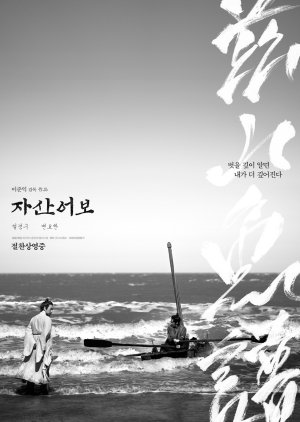




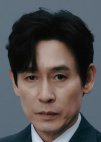





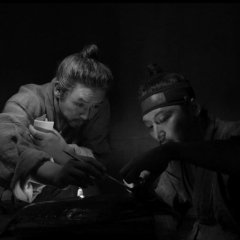
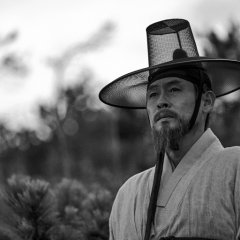
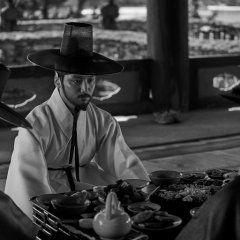
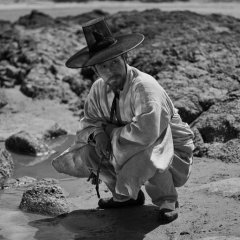
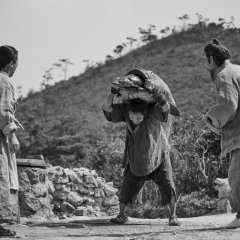
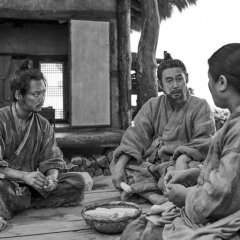
 1
1